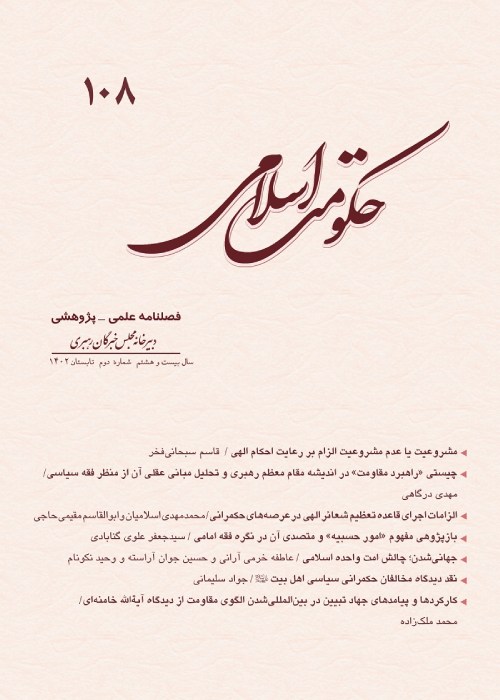A Critical Analysis of the Arguments for the Idea of Setting a Time limit (Tawqit) for the Authority of the Muslim Jurisprudent
The idea of the necessity of setting a time limit for the election of certain people as representatives for different political positions has been recognized as one self-evident principle in systems of government based on democracy. Being influenced by the same idea, and extending the requirements of setting a time limit for political positions or offices to include a Muslim jurisprudent, some scholars maintain that it is necessary to set a time limit for the authority of a Muslim jurisprudent. The main arguments for the establishment and necessity of setting time limit for the authority of legal guardian come from the fear that any government, if continues to rule for a long period of time, may eventually lead to corruption. However, this accusation is denied of the Muslim jurisprudent altogether because the Constitution of the Islamic Republic of Iran, by laying down certain conditions such as ‘justice’ and ‘piety’ as stipulated in the articles 5 and 109 of the Constitution, in addition t0 the external supervision exerted by the Assembly of Experts of the Leadership, has set certain internal indexes for the appointment of a Muslim jurisprudent. These indexes are found to have no trace in other governmental systems of the world when the head of the state is going to be elected. On the other hand, leadership in the systems ruled by a Muslim jurisprudent is never a lifetime position and subject to the conditions and qualifications and bound with time, and as long as the conditions and qualifications set for the leadership persist, the Muslim jurisprudent will remain in his position. Furthermore, if the leader does not meet the conditions for leadership, or is known to have lost his necessary qualifications or competence as stipulated in the Constitution, the Assembly of the Experts is empowered to dismiss him and decide whom to be appointed as his immediate successor. Therefore, the arguments for the necessity of setting a time limit for the rule of the Muslim jurisprudent or a legal guardian can be taken as ‘negative proposition because of its subject being non-existing ab initio.’
- حق عضویت دریافتی صرف حمایت از نشریات عضو و نگهداری، تکمیل و توسعه مگیران میشود.
- پرداخت حق اشتراک و دانلود مقالات اجازه بازنشر آن در سایر رسانههای چاپی و دیجیتال را به کاربر نمیدهد.



